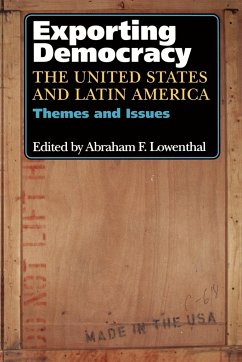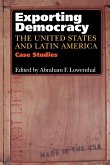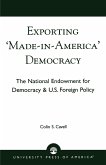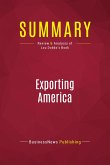The idea that the United States can and should help Latin America achieve democracy has been a recurrent theme in U.S. foreign policy throughout the twentieth century. By the 1990s, it had become virtually unchallenged doctrine, broadly supported on a bipartisan basis. Yet no systematic and comparative study of U.S. attempts to promote Latin American democracy has ever been published -- and the policy community often seems unaware of this history. In "Exporting Democracy," Abraham F. Lowenthal and fourteen other noted scholars from the United States, Latin America, and Europe explore the motives, methods, and results of U.S. efforts to nurture Latin American democracy. Contributors focus on four periods when such efforts were most intense: the years from World War I to the Great Depression, the period immediately following World War II, the 1960s, and the Reagan years. The book tells a cautionary tale -- revealing that U.S. efforts to export democracy in the Americas have met with little enduring success and often have had counterproductive effects. "Exporting Democracy" is available in two paperback volumes, each introduced by Abraham Lowenthal and organized for convenient course use. In the first paperback volume, "Themes and Issues," contributors and their topics are Paul W. Drake, From Good Men to Good Neighbors: 1912-1932; Leslie Bethell, From the Second World War to the Cold War: 1944-1954; Tony Smith, the Alliance for Progress: The 1960s; Thomas Carothers: , The Reagan Years: The 1980s; Elizabeth A. Cobbs, U.S. Business: Self-Interest and Neutrality; Paul G. Buchanan, The Impact of U.S. Labor; John Sheahan, Economic Forces and U.S. Policies; Laurence Whitehead, TheImposition of Democracy; Abraham F. Lowenthal, The United States and Latin American Democracy: Learning from History. In the second paperback volume, "Case Studies," the contributors and their topics are: Carlos Escude, Argentina: The Costs of Contradiction; Heraldo Munoz, Chil








